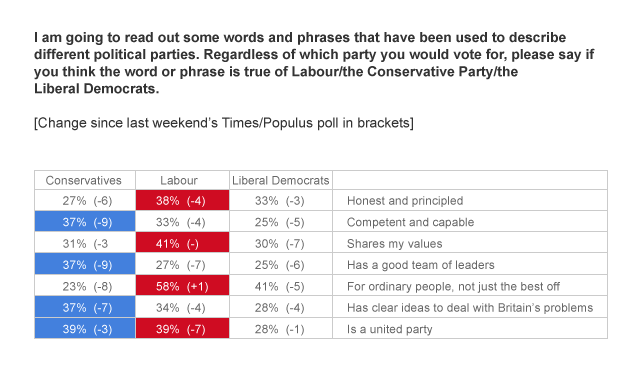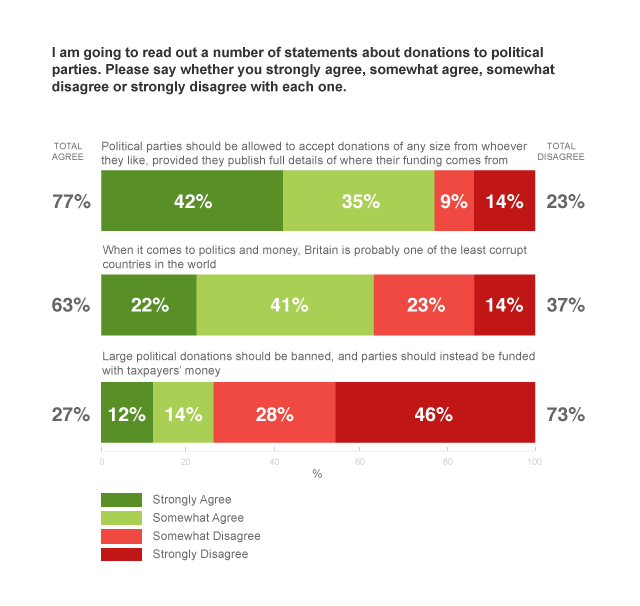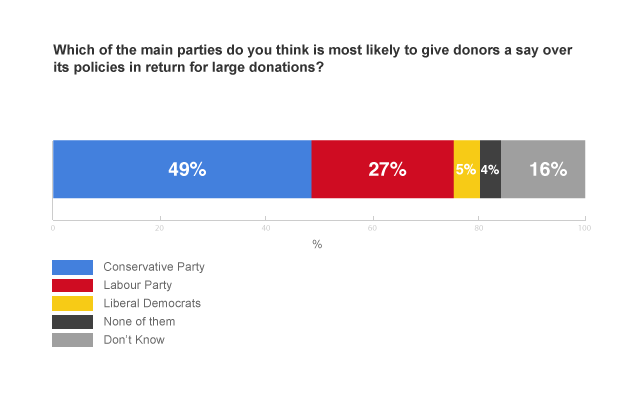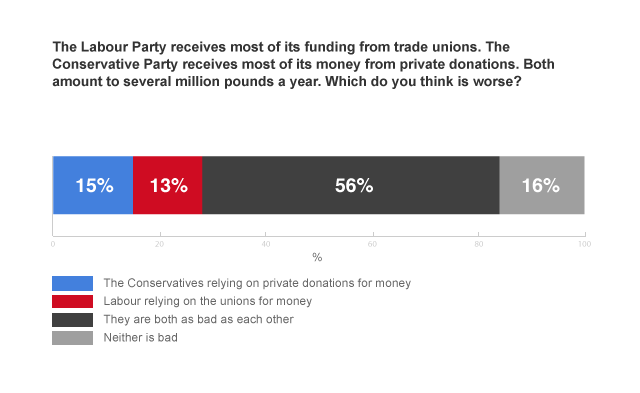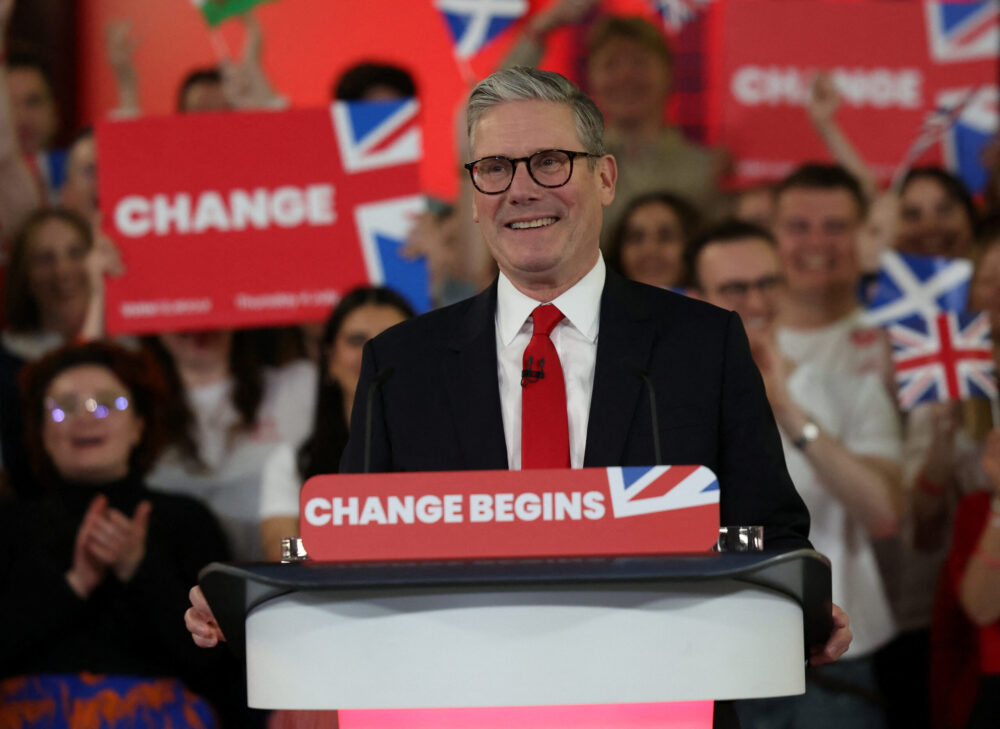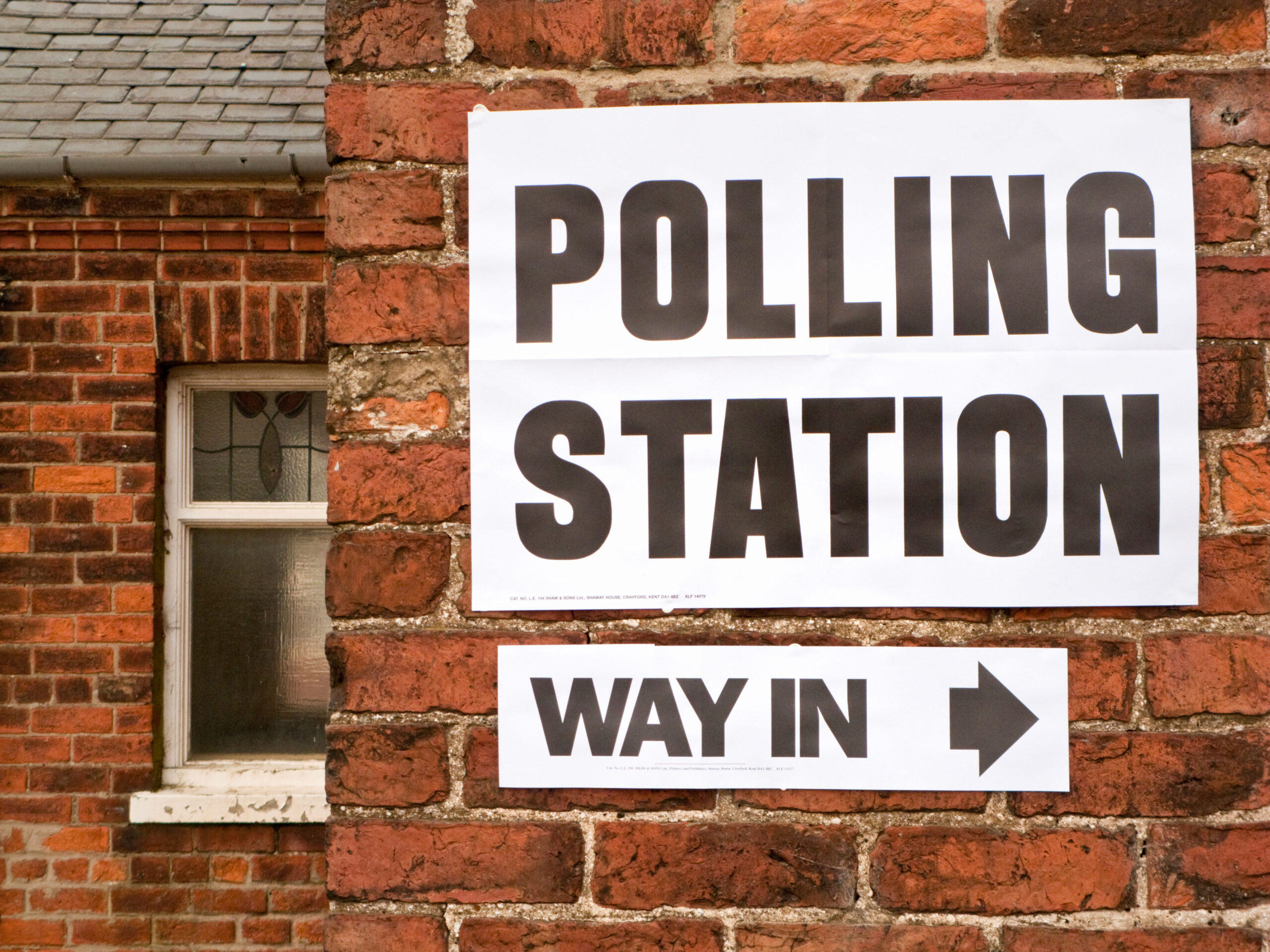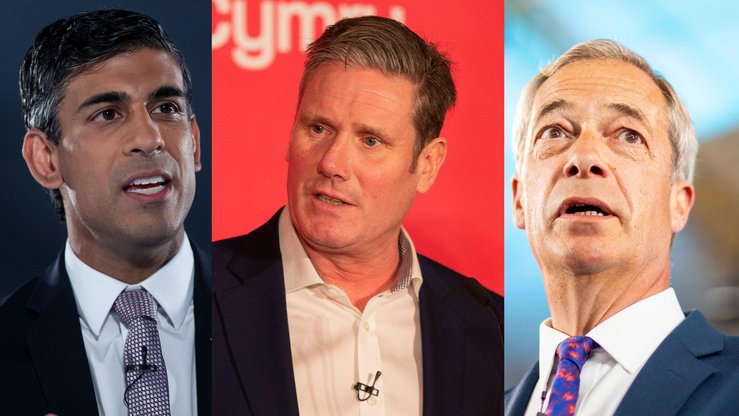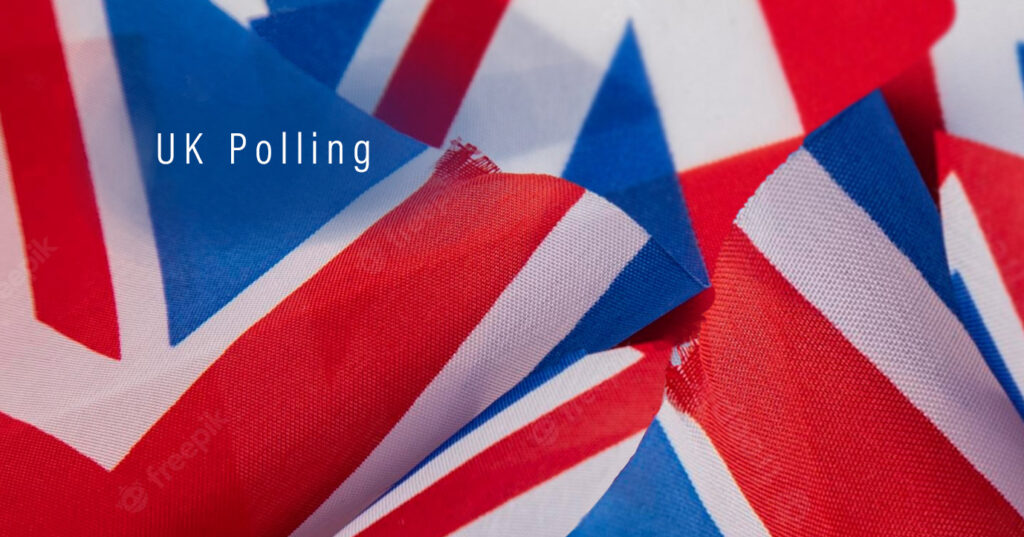
After a week like last week, it is all too easy to panic. This rarely helps. I decided to conduct a poll over the weekend to put things into perspective, and in particular to shed light on one of the issues – party funding – that has added to the Tories’ woes. We asked voters how much they had heard about three stories: “people who have donated large sums of money to the Conservative Party having dinner with the Prime Minister at Number 10”, “changes in the Budget that will mean some pensioners paying more in income tax – which some have called the ‘granny tax’”, and “putting new taxes on hot food bought in shops, including pies and pasties”. Three quarters said they had heard a great deal or quite a lot about the “granny tax”, two thirds said the same about the pasty tax, and just over half said the same about “cash for Cameron”.
Perhaps not surprisingly, respondents in our survey gave the Conservatives some pretty dismal scores on a range of party attributes. These scores were down across the board compared to a similar question in the Populus/Times poll conducted the previous weekend. In one week we are down 6 points at 37% on being “competent and capable”, down 6 points on being “honest and principled” (27%), down 9 points on having “a good team of leaders” (37%), down 7 points on having “clear ideas to deal with Britain’s problems” (37%) and down 8 points on being “for ordinary people, not just the well off” (now a shocking 23%).
The Conservatives are still ahead (though by slightly less) on leadership, competence and ideas to deal with Britain’s problems; Labour are still ahead (though by slightly more) on honesty and principle, values, and being for ordinary people.
Though the week’s bad news cannot have helped, the connection is rarely straightforward. Those who had heard a great deal or quite a lot about the stories we probed were no more or less likely to think the Tories displayed any of these attributes than voters as a whole. It is little comfort, but notable nonetheless, that Labour’s reputation has also suffered on nearly all measures – the party is down 7 points on having a “good team of leaders” (27%) and being “a united party” (39%). This suggests the voting intention figures – a Labour lead of 41% to 32%, close to the recent average of published polls – reflects dissatisfaction with the government more than any warming to the opposition. Despite the headlines, personal ratings for David Cameron and George Osborne are only fractionally lower than they were in February.
When it comes to party funding, most people pay little attention to the details of the alleged scandal of the day. Each one simply reconfirms their general view that politicians are up to no good. More than half of respondents in our poll thought that political parties very often or quite often adopt or change their policies because donors ask them to; only 4% thought they never did so. Asked which is worse, the Conservatives relying on private donations or Labour relying on the unions, more than half said both were as bad as each other; fewer than one in six thought neither was bad.
Despite the clamour for new regulations on party funding, more than three quarters agreed that “political parties should be allowed to accept donations of any size from whoever they like, provided they publish full details of where their funding comes from”. There was also strong opposition to state funding; nearly three quarters disagreed that “large political donations should be banned, and parties should instead be funded with taxpayers’ money”. A clear majority – but at 63%, perhaps not as clear as it should be – agreed that “when it comes to politics and money, Britain is probably one of the least corrupt countries in the world.”
Soberingly, 49% said the Conservative Party was the “most likely to give donors a say over its policies in return for large donations”, compared to 27% who thought it true of Labour. (Only 5% think donors to the Liberal Democrats give money in return for policy influence, but then, what would be the point?) Yet influence over policy is exactly part of the funding deal the unions have with Labour. As the Unions Together website puts it: “In affiliating to the Labour Party, trade unions get to play a major part in the Party’s decision-making processes. This includes appointing members of the Party’s executive, and its policy-forming body (the National Policy Forum) and sending delegates to its sovereign annual conference. Unions use all of these mechanisms to make sure that the Labour Party’s policies reflect the interests of working people.”
It is pretty galling to find the Conservatives, who absolutely do not trade cash for policy influence, are nevertheless thought more likely to do so than Labour, who do it quite openly. No doubt this is partly down to the fact that the most recent story on the subject was about the Tories. It also reminds us that on this question, as with MPs’ expenses, there is no benefit of the doubt on offer from the public. When party funding raises its head, voters do not think we are in any position to make accusations about our opponents, however right we may think we are (and may in fact be). The Conservatives must continue to be honest and transparent in their funding arrangements, and at all costs avoid repeating silly mistakes that suggest corruption where none exists.
